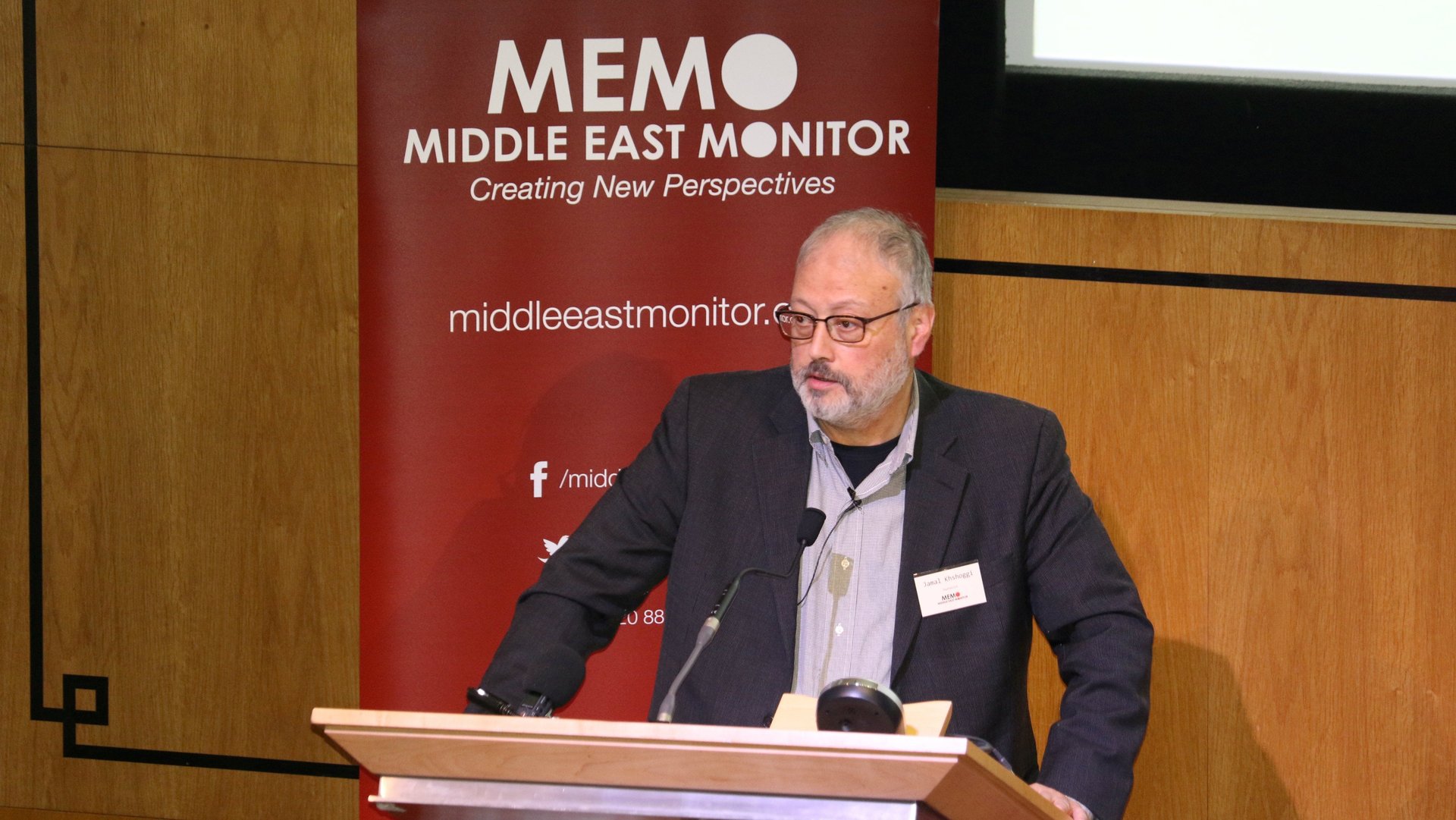These columns allegedly spurred Saudi Arabia to kill journalist Jamal Khashoggi
Turkish officials say Washington Post contributor Jamal Khashoggi—a high-profile critic of Saudi crown prince Mohammed bin Salman—was murdered while visiting the kingdom’s consulate in Istanbul, according to multiple news outlets. Saudi Arabia has denied the allegations.


Turkish officials say Washington Post contributor Jamal Khashoggi—a high-profile critic of Saudi crown prince Mohammed bin Salman—was murdered while visiting the kingdom’s consulate in Istanbul, according to multiple news outlets. Saudi Arabia has denied the allegations.
Khashoggi went to the consulate on Tuesday for a document that would certify he had divorced his ex-wife, which would allow him to remarry. His Turkish fiancée said he never returned; Reuters journalists who were given a tour of the building said there was no trace of him inside.
Washington Post editorial page editor Fred Hiatt said the killing, if true, would represent “a monstrous and unfathomable act.” He described the Saudi national as a “committed, courageous journalist.”
Khashoggi left Saudi Arabia for self-imposed exile in the US after he was allegedly warned to stop tweeting, and his al-Hayat newspaper column was canceled. The 59-year-old started writing for the Washington Post’s opinion section in 2017, and has more than 1.6 million Twitter followers.
Since bin Salman came to power, the crown prince has been seen by some in the west as a reformer, but he also has cracked down on dissent while the country pursues a war in Yemen that has caused a humanitarian crisis—controversies that Khashoggi highlighted in his writing.
The following are excerpts from some of Khashoggi’s Washington Post columns.
Sept. 18, 2017
: “Saudi Arabia wasn’t always this repressive. Now it’s unbearable.”
It was painful for me several years ago when several friends were arrested. I said nothing. I didn’t want to lose my job or my freedom. I worried about my family.
I have made a different choice now. I have left my home, my family and my job, and I am raising my voice. To do otherwise would betray those who languish in prison. I can speak when so many cannot. I want you to know that Saudi Arabia has not always been as it is now. We Saudis deserve better.
November 5
: “Saudi Arabia’s crown prince is acting like Putin”
So is the 32-year-old crown prince more like Russia’s Mikhail Gorbachev or Vladimir Putin in this effort? Is he on a path to truly reform the entire system? Or is he simply seizing upon well-known figures to further centralize power in his own hands?
As of now, I would say Mohammed bin Salman is acting like Putin. He is imposing very selective justice. The crackdown on even the most constructive criticism — the demand for complete loyalty with a significant “or else” — remains a serious challenge to the crown prince’s desire to be seen as a modern, enlightened leader.
Feb. 7
: “Saudi Arabia’s crown prince already controlled the nation’s media. Now he’s squeezing it even further”
Over the past 18 months, MBS’s communications team within the Royal Court publicly has chastised, and worse, intimidated anyone who disagrees. Saud Al-Qahtani, leader of that unit, has a blacklist and calls for Saudis to add names to it. Writers like me, whose criticism is offered respectfully, seem to be considered more dangerous than the more strident Saudi opposition based in London. The government arrested dozens of intellectuals, clerics and social media figures over the past year, even though most are actually supportive of MBS’s reforms. Compliant journalists are rewarded with money and access to senior officials.
Sept. 11
: “Saudi Arabia’s crown prince must restore dignity to his country — by ending Yemen’s cruel war”
The longer this cruel war lasts in Yemen, the more permanent the damage will be. The people of Yemen will be busy fighting poverty, cholera and water scarcity and rebuilding their country. The crown prince must bring an end to the violence and restore the dignity of the birthplace of Islam.